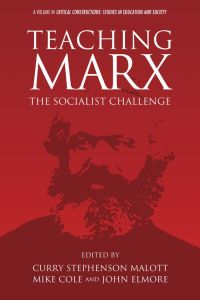
Capitorg
APPROACHING POSTHUMANISM AND THE POSTHUMAN
Conference and Doctoral Workshop
June 4-6, 2015 – St. Maurice, Switzerland
Keynote Speakers:
Jeffrey Jerome Cohen, George Washington University
Stefan Herbrechter, Coventry University
Margrit Shildrick, Linköping University
Cary Wolfe, Rice University
Organizers: Deborah Madsen, Manuela Rossini, Kimberly Frohreich, and Bryn Skibo-Birney
CALL FOR PAPERS: http://call-for-papers.sas.upenn.edu/node/57765
A highly topical and sometimes contentious notion, posthumanism continues to spark debates as to how it is
and should be defined, particularly in relation to humanism. One might ask whether the posthuman is merely
an imaginative, literary, and/or theoretical figure or if we are already posthuman. Is posthumanism simply
“after the human” or does it speak to a being beyond, above, within, encompassing, and surpassing what we
currently know as “the human”? Moreover, even if we recognize that posthumanism is inextricably bound to
and wound up in humanist discourse, does the posthuman figure effectively open up alternative perspectives
and positions from which to question, to destabilize, and to decenter the human?
These questions permeate contemporary literature, film and television, comic books, video games, social
media, philosophical and theoretical essays in which posthuman figures abound. From avatars and cyborgs to
clones and zombies, the posthuman appears continually to challenge the line dividing the human from the
nonhuman. Whether blurring the distinction between human and machine, human and animal, organic and
inorganic, or the living from the dead, whether destabilizing gender, sexuality, race, class, age, the
mind/body dichotomy, or species categorization, posthumanism points to the ways in which (the exclusion
of) the Other is necessary to the self-bounded identity of the human(ist) subject. More than a contemporary
issue, posthumanism appears whenever “humanness” or anthropocentrism is in crisis, and critics have
accordingly noted the presence of posthumanist thought, themes, and figures not only in postmodern
literature but in much earlier literary periods as well.
The aim of this conference is both to explore the multiple ways in which posthumanism in its various
configurations questions, complicates, destabilizes, and “haunts” humanism and the human, as well as to
discuss theoretical approaches to posthumanism and/or the posthuman. In addition to inhabiting a wide range
of literary periods, genres, and media, posthumanism can also be said to blur the seemingly well-defined
borders between humanities disciplines, lending itself to interdisciplinary approaches involving literary and
cultural studies, media studies, animal studies, and fields like the digital, medical, and environmental
humanities, as well as drawing from multiple theoretical frameworks such as feminism, gender studies, queer
theory, race theory, disability studies, postcolonial studies, psychoanalysis, and deconstruction.
Please send 300 word abstracts to Kimberly Frohreich (kimberly.frohreich@unige.ch) and Bryn Skibo-
Birney (bryn.skibo@unige.ch) by September 15, 2014.
Paper topics can address (but are not limited to) any of the above areas and themes across disciplines, periods, genres, and media.
An additional list of potential paper topics is below:
- Posthumanist discourse and/or figures in medieval, early modern, modern or contemporary literature
- Posthuman figures in film and television
- Posthuman figures in comic books and graphic novels
- Posthuman figures in contemporary media forms, e.g. video games, social media, etc.
- Posthumanism and critical animal studies
- Digital humanities and posthumanism
- Medical humanities and posthumanism
- Environmental humanities and posthumanism
- Postcolonial posthumanism
- Posthumanism and the Gothic (then and now)
- Posthumanism and fantasy, science fiction and/or speculative fiction
- Virtual versus embodied reality
- Monsters, ..freaks,.. and/or superheroes
- Metamorphoses and interspecies being/becoming
- Posthuman(ist) subjectivities
- Embodying posthumanism or the posthuman body
- The posthumous
- Language and the posthuman
- Posthumanism and gender, sexuality, race/ethnicity, and/or class
- Anthropomorphism
- Posthuman politics and ethics
**END**
‘Human Herbs’ – a song by Cold Hands & Quarter Moon: http://www.youtube.com/watch?v=Au-vyMtfDAs
Posted here by Glenn Rikowski
Glenn Rikowski @ Academia: http://independent.academia.edu/GlennRikowski
Glenn Rikowski @ ResearchGate: http://www.researchgate.net/profile/Glenn_Rikowski?ev=hdr_xprf
Online Publications at The Flow of Ideas: http://www.flowideas.co.uk/?page=pub&sub=Online%20Publications%20Glenn%20Rikowski
The Flow of Ideas: http://www.flowideas.co.uk














